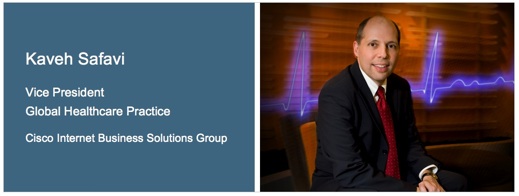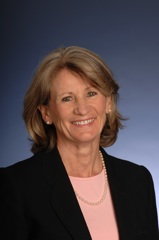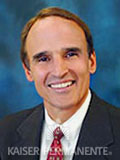
Dr. Safavi will take a few moments in the morning to kick-off the un-conference and share his unique perspectives on innovation.
His biography
What drives a talented young physician to dedicate himself to the taxing demands of medical practice during the day, while pursuing a law degree at night?
After succeeding in both of these all-consuming programs, what motivates that same individual to take on professional assignments that tackle some of the thorniest issues facing the healthcare industry today, from complex policy and legislation to cultural barriers that can impede the adoption of beneficial new medical practices?
If you are Kaveh Safavi—the answer is simple: the patient.
As Safavi sees it, the locus of power in healthcare historically has been with the healthcare providers, rather than with the healthcare customers. But Safavi believes we are at a tipping point, where the patient and his or her needs will drive the provision and delivery of healthcare.
That passion for improving patient care ultimately brought Safavi to Cisco, where he serves as vice president of the Global Healthcare Practice, Cisco Internet Business Solutions Group (IBSG)—the company’s global, strategic consulting arm. The Healthcare Practice helps leaders in the healthcare and life sciences industries transform the way that their organizations design and deliver healthcare to customers.
In other words, Safavi and Cisco are tapping technology—Cisco technologies in particular—to tip the balance of power in favor of the patient. In doing so, providers, payers and clinicians benefit, too, from enhanced productivity, reduced costs, and new revenue streams and better patient loyalty.
In many ways, Safavi believes that the future of healthcare is already here—if one knows where to look. As an evangelist for healthcare transformation, Safavi and team seed innovative solutions around the world and across the healthcare ecosystem, from life sciences, to payers, clinicians, and hospitals. Recent examples include:
• The most qualified medical specialist for any given condition could be a world away from a needy patient. The innovative Cisco HealthPresence concept combines state-of-the-art video, audio, diagnostic and medical information to create an environment similar to what most people experience when they visit their doctor or health specialist. HealthPresence creates a live, “face-to-face visit” experience over the network for clinicians and patients. Safavi’s team developed the concept and is leading Cisco HealthPresence pilots in medical facilities globally, providing improved access to care and convenience for both patients and healthcare professionals.
• The latest mobility solutions can radically transform “bedside care” by moving critical information out of file cabinets and other antiquated systems and into the hands of clinicians and doctors. At a rural Australian health network, Safavi and his team helped the Queensland government use mobile devices and the network to diagnose patients’ conditions faster and better at the bedside. The results are improvements in productivity and staff satisfaction to, most important, the quality of care.
• Experimenting in virtual worlds such as Second Life, Cisco IBSG is teaming with healthcare leaders to simulate improved patient and provider experiences through new communications technology. For example, Cisco created “Hallie,” a virtual assistant that demonstrates how hospitals of the future can help patients with nonmedical details—such as family accommodations and travel advice—surrounding their physical and virtual hospital visits.
• In a multilingual global society, language barriers can compromise doctor-patient communication and, therefore, the quality of treatment. Centers such as the Health Care Interpreter Network (HCIN) of Northern California are using Cisco video and voice-over-IP technology to provide nearly 400 hos¬pital staff with rapid access to trained interpreters. The service is available 24 hours a day, seven days a week and is improving patient satisfaction, quality of care, and the productivity of medical staff.
Safavi has published numerous papers and articles. He is quoted frequently in The Wall Street Journal, The New York Times, and The Economist. Safavi speaks about his passion for healthcare transformation at more than 50 engagements annually worldwide.
Prior to Cisco, Safavi was chief medical officer for the healthcare business of Thomson Reuters, where he established the Center for Healthcare Improvement and led the 100 Top Hospital program. In the early 1990s, Safavi was president and medical director of HealthSpring Medical Group of Illinois. There, he developed a Physician Practice Management business with a fully automated electronic medical record system. He is board-certified in internal medicine and pediatrics. His clinical experience includes four years at the University of Michigan Medical Center, Internal Medicine and Pediatric Residency Program.
 Patricia N. Perry is vice president of the Digital Health Group and director of Product Delivery at Intel Corporation. She is responsible for customer and in-home patient deployment of purpose-built telehealth solutions, including regulated medical devices. In addition, she is chartered with product distribution, supply chain management and manufacturing of Intel’s Digital Health products and solutions. Prior to Director of Product Delivery, Perry was General Manager of Healthcare Information Technology. Perry joined Intel in 1983.
Patricia N. Perry is vice president of the Digital Health Group and director of Product Delivery at Intel Corporation. She is responsible for customer and in-home patient deployment of purpose-built telehealth solutions, including regulated medical devices. In addition, she is chartered with product distribution, supply chain management and manufacturing of Intel’s Digital Health products and solutions. Prior to Director of Product Delivery, Perry was General Manager of Healthcare Information Technology. Perry joined Intel in 1983.
 Dr. Robert Pearl is Executive Director and CEO of The Permanente Medical Group.
Dr. Robert Pearl is Executive Director and CEO of The Permanente Medical Group.
